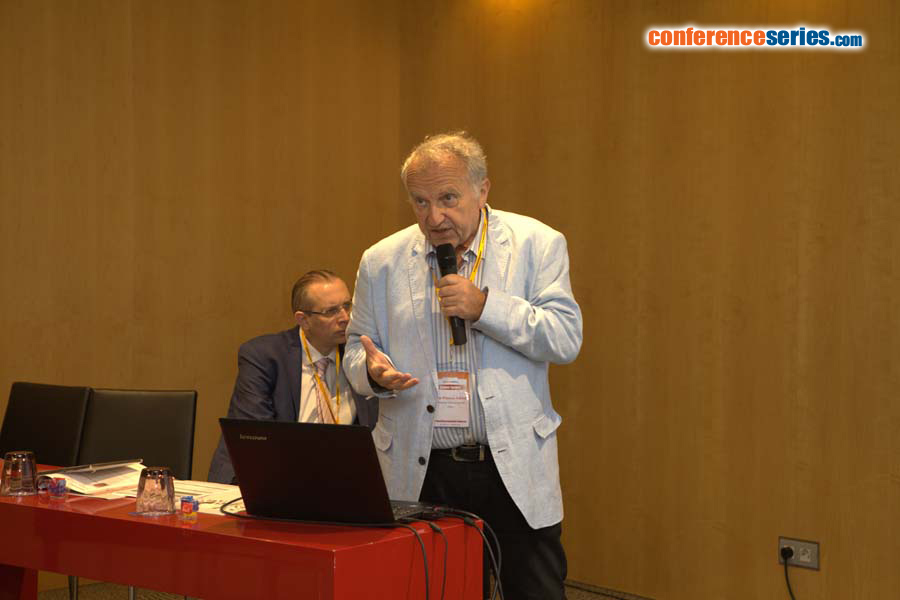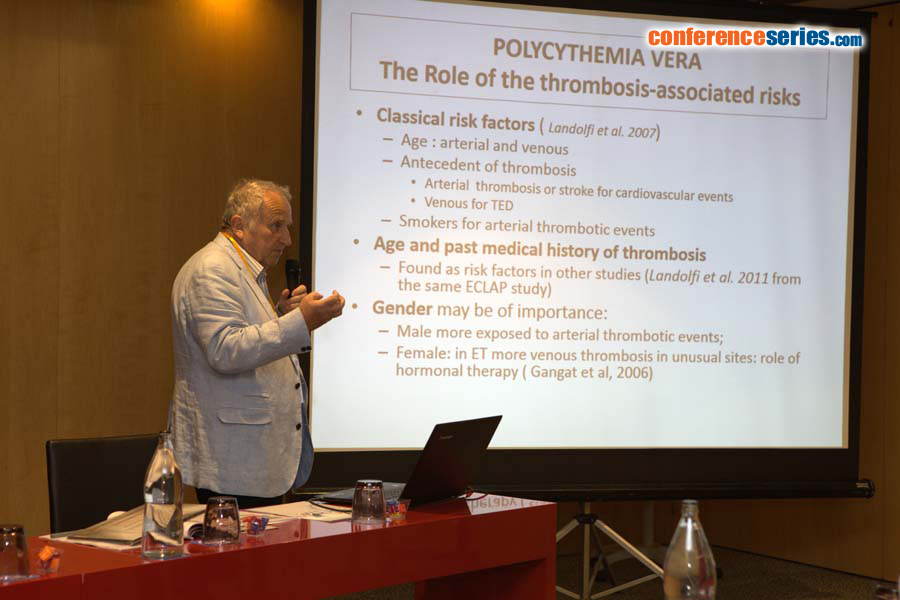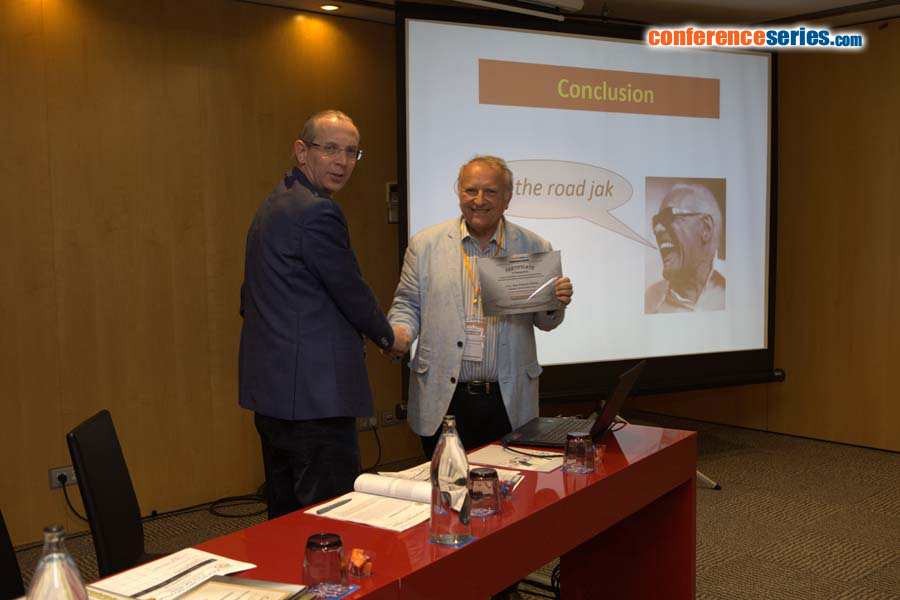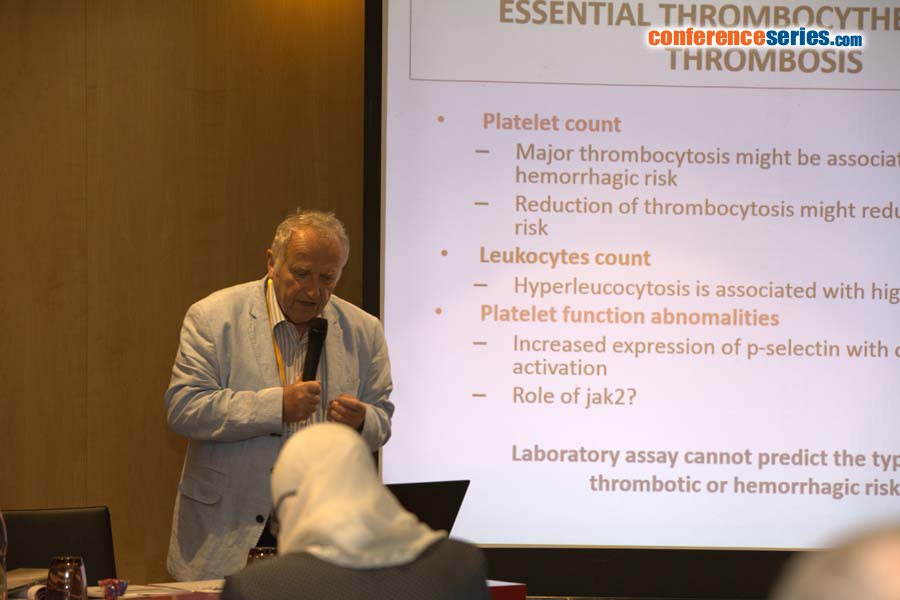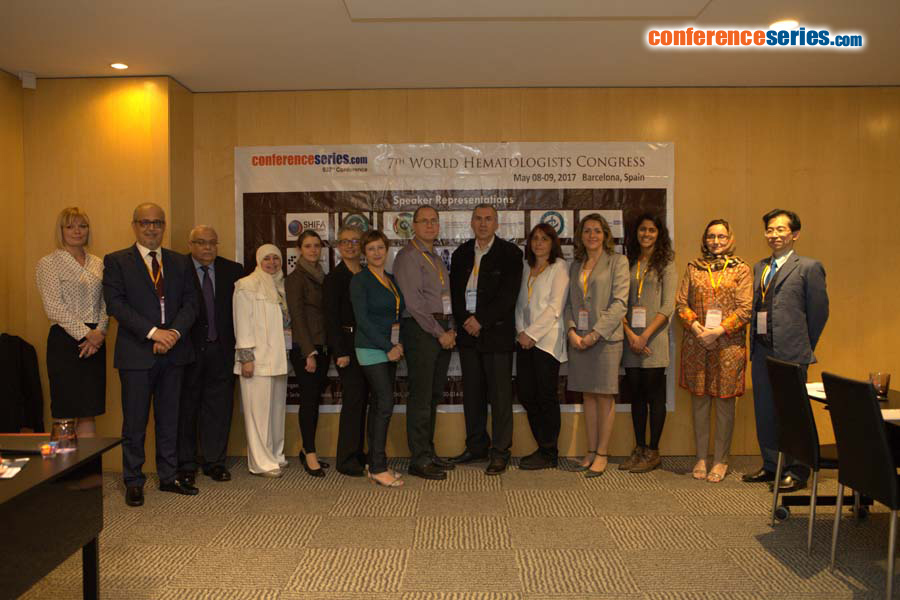
Jean-Francois Schved
Montpellier University Hospital, France
Title: Pathogenesis of thrombosis in myeloproliferative neoplasms
Biography
Biography: Jean-Francois Schved
Abstract
Venous or arterial thrombosis are the most frequent complications of myeloproliferative neoplasms, mainly polycythemia vera and essential thrombocythemia. Their pathogenesis has been extensively investigated but is not fully elucidated. They are multifactorial involving quantitative and qualitative red blood cell, platelet and leukocyte abnormalities. Blood hyper viscosity is likely to play a role in polycythemia vera. It induces a high shear stress of the vessel wall and mead to chronic endothelial dysfunction and platelet and leukocyte activation. The development of cell aggregate such as red cells, platelet or leukocyte aggregates may disturb blood flow and cause ischemia in the cerebral vessels. For platelet, high platelet count may not be associated to high thrombotic risk. On the contrary, very high thrombocytosis seems to be associated with hemorrhagic complication. Qualitative platelet changes may be more relevant: both polycythemias vera and essential thrombocythemia subjects were found to have an increased urinary excretion of the major thromboxane A2 metabolites. The role of leukocytes has also been investigated. It’s well known that leukocytosis is an independent risk factor for thrombosis. As for platelets, the role of leukocyte activation may be important as assessed by overexpression of CD11b antigen and elevation of leukocyte derived plasma markers, namely cathepsin G and elastase. Finally all these blood cell activation leads to inflammation which is likely to play a significant role in the thrombotic risk of myeloproliferative neoplasms.
Speaker Presentations
Speaker PPTs Click Here

